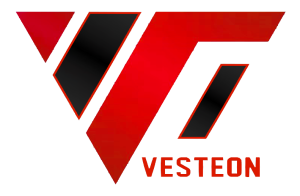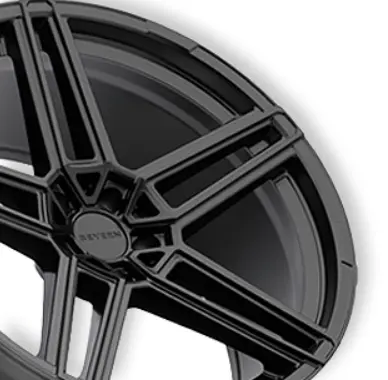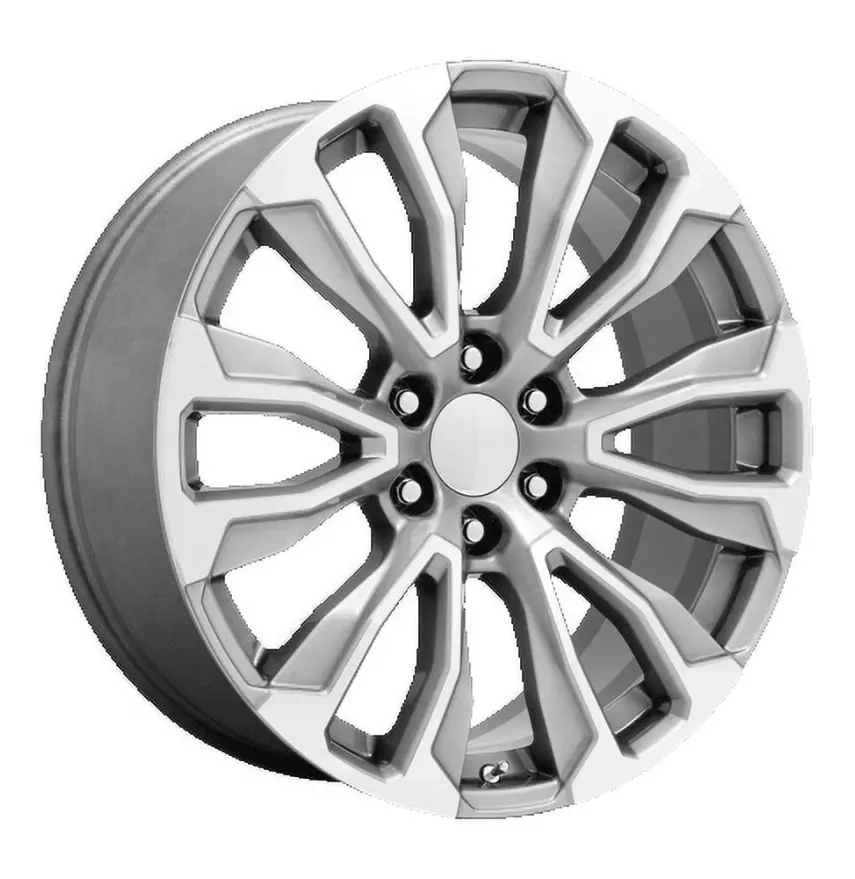For car enthusiasts looking to upgrade their vehicle’s style and performance, cast aluminum rims offer an enticing blend of affordability, aesthetics, and enhanced driving dynamics. While the allure of high-end forged rims might tempt, cast aluminum rims present a smart choice, providing a noticeable upgrade over standard steel wheels without breaking the bank.
Understanding the Appeal of Cast Aluminum Rims
Cast aluminum rims have become increasingly popular in recent years, and for good reason. They offer a range of benefits that appeal to both casual drivers and passionate car enthusiasts alike. Let’s explore the key advantages that make cast aluminum rims a popular choice for affordable wheel upgrades:
- Lightweight Design: While not as light as their forged counterparts, cast aluminum rimsare significantly lighter than traditional steel wheels. This reduced weight translates to improved acceleration, braking, and handling, making the car feel more nimble and responsive.
- Enhanced Aesthetics: Cast aluminum rimsare available in a wide variety of styles and designs, allowing car owners to personalize their vehicle’s appearance. The casting process enables the creation of intricate patterns and finishes that can significantly enhance the visual appeal of any car.
- Improved Heat Dissipation: Aluminum is an excellent conductor of heat, and cast aluminum rimshelp dissipate heat generated by the brakes more effectively than steel wheels. This can improve braking performance and reduce the risk of brake fade during spirited driving.
- Cost-Effective Solution: The casting process, which involves pouring molten aluminum into a mold, is simpler and less resource-intensive than the forging process used to create forged rims. This translates to lower production costs, making cast aluminum rimsa more budget-friendly option for wheel upgrades.
The Casting Process: A Closer Look
Cast aluminum rims are manufactured through a process that involves several key steps:
- Melting and Alloying: Aluminum alloy, typically a blend of aluminum with other metals like magnesium and silicon, is melted in a furnace.
- Mold Preparation: A mold, typically made of steel or sand, is prepared to the exact specifications of the desired wheel design.
- Casting: The molten aluminum alloy is poured into the mold and allowed to cool and solidify.
- Finishing: Once the wheel has cooled, it is removed from the mold and undergoes finishing processes such as machining, polishing, and painting.
This process allows for the creation of cast aluminum rims with intricate designs and a high level of detail, giving them a distinct edge over the simpler designs of steel wheels.
Choosing the Right Cast Aluminum Rims: Factors to Consider
With a plethora of cast aluminum rim options available on the market, it’s important to consider several factors to ensure you select the right set for your vehicle and driving needs:
- Size and Fitment: The diameter, width, offset, and bolt pattern of the rims must be compatible with your vehicle’s specifications. It’s crucial to consult your vehicle’s owner’s manual or a reputable wheel specialist to ensure proper fitment.
- Style and Design: Cast aluminum rimscome in a wide range of styles, from classic multi-spoke designs to modern mesh and concave styles. Consider your vehicle’s overall aesthetic and choose a style that complements its look.
- Finish: The finish of the rims can significantly impact their appearance and durability. Popular finishes include painted, chrome-plated, polished, and powder-coated. Each finish offers different levels of durability and maintenance requirements.
- Quality and Reputation: Choose cast aluminum rimsfrom reputable manufacturers that adhere to strict quality control standards. This will ensure that the rims are structurally sound and can withstand the stresses of everyday driving.
Vesteon: Delivering Quality and Affordability in Cast Aluminum Rims
Shandong Vesteon Automotive Parts (Group) Co., Ltd, a prominent player in the global wheel industry, stands out for its commitment to delivering high-quality cast aluminum rims at competitive prices. Established in 2005, Vesteon has established itself as a trusted supplier, catering to both aftermarket and OEM clients worldwide.
Vesteon‘s extensive experience, advanced manufacturing facilities, and stringent quality control processes ensure that their cast aluminum rims meet the highest industry standards. The company’s focus on customer satisfaction is reflected in its wide range of styles, designs, and finishes, allowing car enthusiasts to find the perfect set of rims to enhance their vehicle’s appearance and performance.
Vesteon’s OEM Expertise: Partnering with Automotive Leaders
Beyond its aftermarket offerings, Vesteon’s capabilities extend to providing comprehensive OEM services to leading automotive manufacturers. The company’s expertise in design, engineering, and manufacturing allows it to collaborate closely with OEM clients to develop custom cast aluminum rim solutions tailored to specific vehicle models and performance requirements.
Vesteon’s OEM services encompass:
- Collaborative Design and Development: Vesteon’s engineering team works closely with OEM clients to create rim designs that meet specific technical specifications, performance targets, and aesthetic considerations.
- Material Selection and Optimization: Vesteon leverages its expertise in various aluminum alloys to select the optimal material for each OEM application, ensuring a balance of strength, weight, and durability.
- Precision Manufacturing and Quality Control: Vesteon’s state-of-the-art production facilities and rigorous quality control processes ensure that every OEM rim meets the stringent standards set by automotive manufacturers.
- On-Time Delivery and Support: Vesteon’s commitment to customer satisfaction extends to its OEM services, with a focus on on-time delivery and ongoing support throughout the entire production process.
Vesteon’s dedication to OEM excellence has made it a valued partner for automotive brands seeking to equip their vehicles with high-quality, performance-driven cast aluminum rims.
Cast Aluminum Rims vs. Forged Rims: Make Your Decision
While cast aluminum rims offer an excellent balance of affordability and performance, it’s important to understand how they differ from forged rims, which represent the top tier in wheel technology.
Key Differences between Cast and Forged Aluminum Rims:
| Feature | Cast Aluminum Rims | Forged Aluminum Rims |
| Manufacturing Process | Molten aluminum poured into a mold | Solid block of aluminum shaped under extreme heat and pressure |
| Strength | Generally less strong than forged rims; more susceptible to cracking under heavy impact | Significantly stronger and more durable; less prone to cracking or bending |
| Weight | Lighter than steel wheels, but heavier than forged rims | Considerably lighter than cast rims; significantly reduces unsprung weight |
| Cost | More affordable than forged rims due to simpler manufacturing process | Significantly more expensive than cast rims due to complex and resource-intensive manufacturing process |
| Customization | Limited customization options; typically available in pre-designed styles and finishes | Extensive customization options; can be tailored to specific sizes, offsets, and finishes |
Conclusion: Making the Right Choice for Your Needs
Cast aluminum rims offer a compelling upgrade for car owners seeking to enhance their vehicle’s appearance and performance without the premium price tag of forged rims. They provide a noticeable improvement in terms of weight, aesthetics, and driving dynamics compared to standard steel wheels, making them an excellent choice for those looking for a stylish and affordable wheel upgrade.
While forged rims represent the ultimate in wheel technology, their higher cost might not be justifiable for all drivers. For those who prioritize affordability without sacrificing quality and style, cast aluminum rims offer a compelling solution, striking a balance between performance and value.
Ultimately, the choice between cast and forged aluminum rims depends on your individual needs, driving style, and budget. Carefully considering the pros and cons of each type, and consulting with a reputable wheel specialist, will help you make an informed decision that best suits your vehicle and driving preferences.


